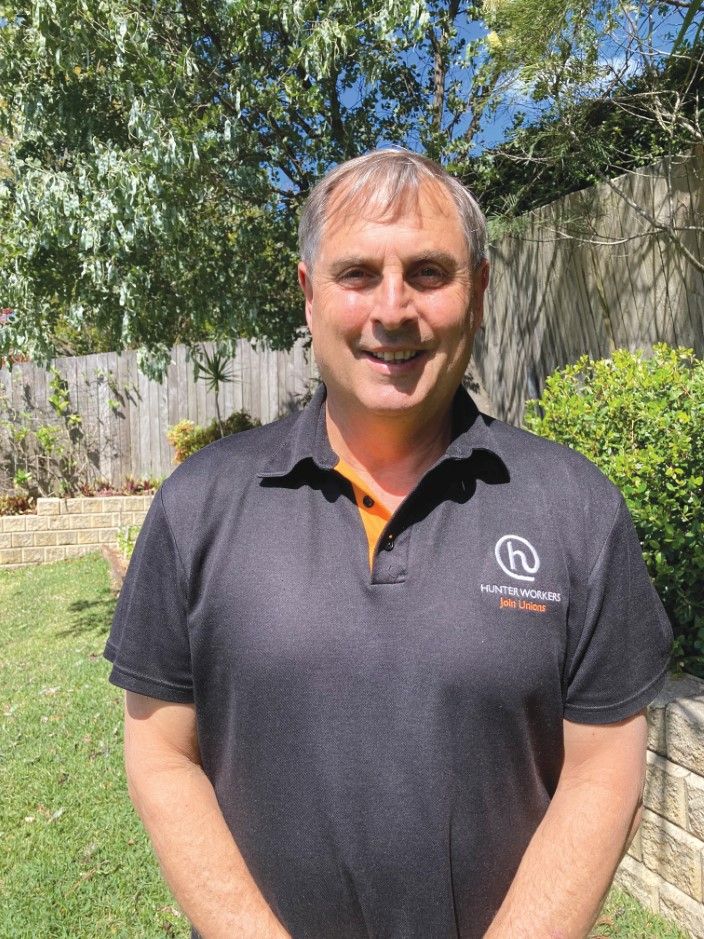
IEU Organiser Carlo Rendina
IEU Organiser Carlo Rendina was recently elected President of Hunter Workers, the peak body representing union members in the Newcastle region, journalist Sue Osborne writes.
Hunter Workers has been around in one form or another for 152 years. The Eight Hour Day Committee was formed on 21 November 1869 and in 1895 became Newcastle Trades Hall Council (NTHC). In 2017, NTHC changed its name to the more inclusive Hunter Workers, but NTHC remains the governing body. Hunter Workers represents 27 affiliated unions and about 70,000 union members.
Rendina takes over as President at a time of considerable flux. Manufacturing still plays a vital role in the area, but it is on the wane and Hunter Workers, along with other organisations, are lobbying all levels of government for support for new enterprises, such as an expanded international airport.
Hunter Workers is also exploring new ways of supporting and communicating with union members and the wider community. It has recently appointed a social media coordinator.
“We used to be able to march on the streets, and the police would cheer us on, but we live in different times. We have to find new ways of reaching people, especially the younger generation,” Rendina said.
The future of coal in the area, and the diverse opinions on that issue, even within the labour movement, is another issue that Hunter Workers must grapple with.
Rendina taught mathematics and was Studies of Religion Coordinator at St Francis Xavier's College in Hamilton for many years before taking a role with the IEU in 2007 to cover an organiser's maternity leave. In 2011, he joined the IEU as a permanent organiser in Newcastle.
He was a delegate on NTHC for about 25 years, a member of the executive since 2013, a trustee since 2020 and elected President on 2 September.
He said Hunter Workers' vision has not changed from the Eight Hour Day Committee of 150 years ago.
“We believe all workers have a right be safe at work, receive a fair day’s pay for a fair day’s work. They should enjoy working conditions that allow them to support their families and productively contribute to the community they live in,” Rendina said.
“How this is achieved has changed from the days of the Rothbury Riot* and the protest marches and green bans of the ‘70s. Working within current legislative restraints, Hunter Workers supports union members by assisting in affiliated union campaigns, having a strong traditional media and social media presence, engaging with political leaders, supporting local social justice groups and working with Unions NSW and the ACTU on state and federal campaigns.







































































































































